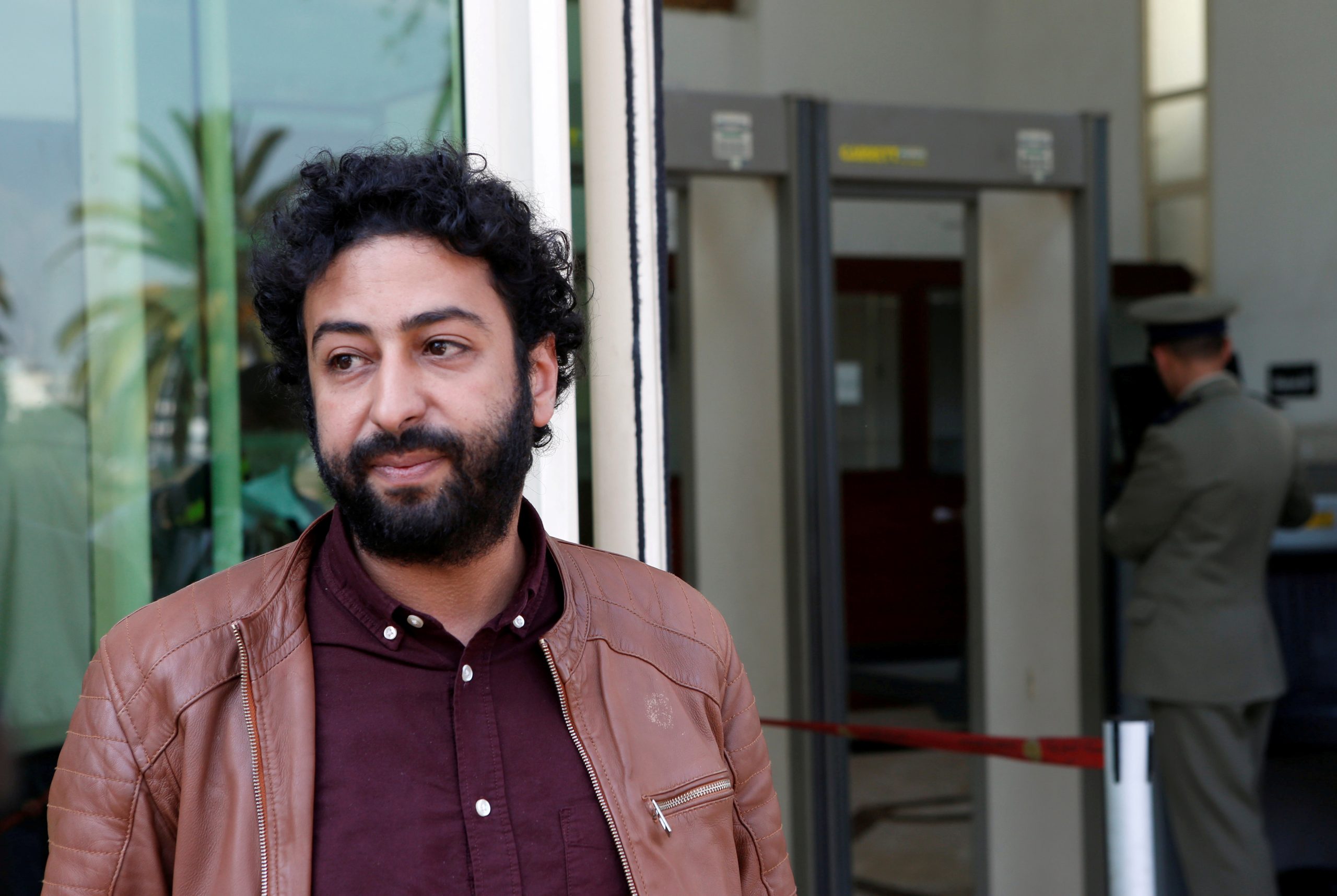© Photo by REUTERS/Youssef Boudlal
The Clooney Foundation for Justice calls on Morocco to reverse the unjust conviction of award-winning journalist Omar Radi.
Radi was convicted and given a suspended sentence of four months’ imprisonment and fined for a single tweet criticizing a judge for upholding severe prison sentences imposed on political activists from the impoverished Rif Region. Radi wrote, “Let us all remember Appeals Judge Lahcen Tolfi, the enforcer against our brothers. In many regimes, small-time henchmen like him come back begging, later, claiming they were only ‘carrying out orders.’ No forgetting or forgiveness with such undignified officials!” The USC International Human Rights Clinic monitored the proceedings against him as part of CFJ’s TrialWatch initiative.
Radi’s case is one of a growing number of prosecutions brought by Moroccan authorities against individuals who criticize public officials on social media. On December 26, 2019, Radi was charged with violating Article 263 of the Moroccan Penal Code, which criminalizes any intentional “insult” of the judiciary, based on his tweet.
This case should never have been brought. As the UN Human Rights Committee has explained, “the mere fact that . . . expression … insult[s] … a public figure is [in]sufficient to justify the imposition of penalties.” Morocco’s prosecution of Mr. Radi therefore violated his right to freedom of expression under the International Covenant on Civil and Political Rights (ICCPR).
There is also evidence that Moroccan officials prosecuted Radi to deter him from engaging in further investigative reporting. Radi was prosecuted 8 months after the offending tweet but immediately after his return from Algeria, where he criticized the Moroccan government’s Rif Region policies. Further, defense counsel noted that Radi had been repeatedly denied a press card when he had requested one.
The USC International Human Rights Clinic, which is preparing a full report assessing the fairness of Radi’s trial, also noted that his trial may have been deficient in other respects. Article 263 only prohibits insulting a judge with the intent to harm his “honor [or] feelings” or “respect for [judicial] authority.” At trial, however, Radi testified that he intended to “criticize the [court’s] judgment.” The government responded by pointing to the text of Radi’s tweet and arguing that it was “irresponsible” for Radi “to write something without bearing in mind the audience’s emotions.” This raises questions regarding whether the prosecution could meet its burden of proof as required by Article 14 of the ICCPR.
A full report, including analysis of any other violations of the International Covenant on Civil and Political Rights, will be released soon.
